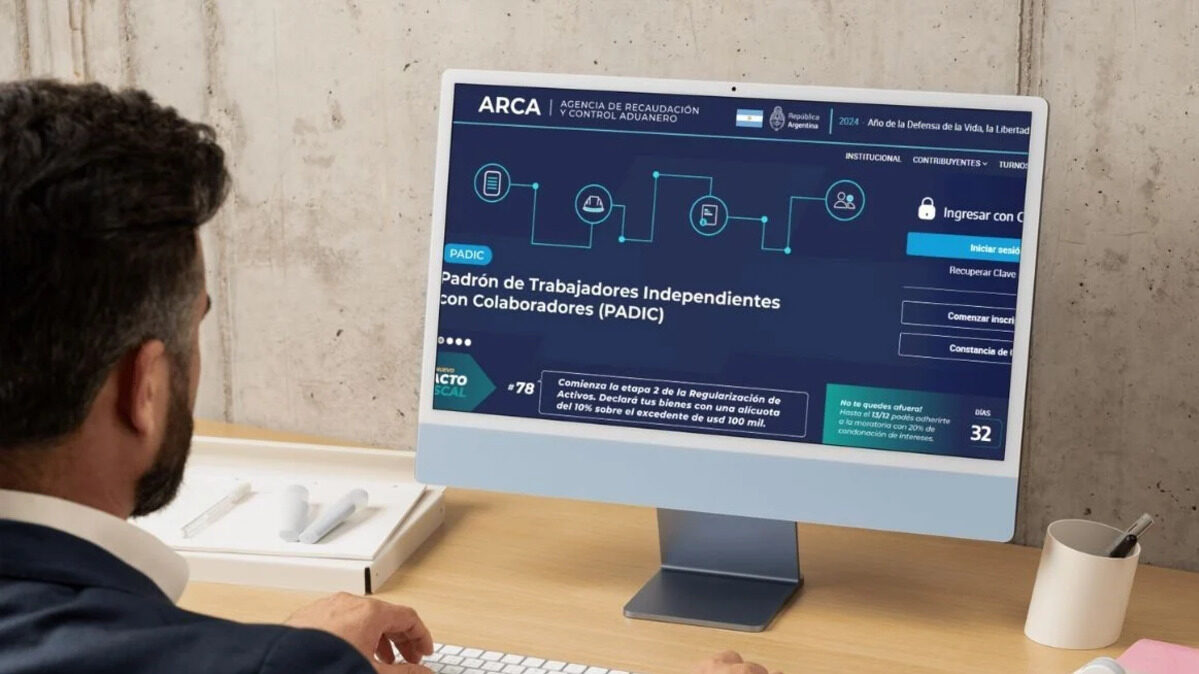Mattress dollars: ARCA threatens to cut off access to tax data for provinces that do not adhere


The Customs Revenue and Control Agency ( ARCA ) launched a direct offensive to get all provinces to join the new tax regime for the use of dollars, which supports the so-called "Plan for the Historic Repair of Argentine Savings." The strategy consists of contacting governors one by one to request an information exchange agreement. But the message was clear: if they don't comply, they will lose access to the most sensitive tax database in the country.
The measure was announced this Tuesday through an official statement that left no room for doubt: " Those provinces that do not adhere to the aforementioned Regime will lose access to billing information for individuals and/or companies, as well as information related to consumption that exceeds the thresholds set by ARCA ($50,000,000) ."
ARCA's threat came just hours after several provincial leaders announced they would not relinquish their fiscal powers or abandon local oversight mechanisms. Even from Peronist provinces like Buenos Aires, the message was resounding: provincial taxes will continue to be collected without modifications, and audits will remain active.
In this context, ARBA director Cristian Girard harshly criticized thenational government : "There are no concrete regulatory changes. The measures announced so far lack legal certainty and appear more like an election promise than an effective tax policy," said the official close to Axel Kicillof .
Girard's response is aimed squarely at the virtual money laundering proposed by President Javier Milei . He made it clear that, at least in the province of Buenos Aires, the new guidelines for the simplified income tax regime do not mean automatic relief for those with undeclared funds.
The core of the conflict is political and institutional. Although ARCA has stipulated that it will no longer receive automatic information from banks for transactions exceeding $50 million, many provinces have decided to maintain their own reporting regimes. ARBA, for example, will continue to audit without changes and collect provincial taxes such as Gross Income and Real Estate without exception.
"The obligation to pay taxes according to one's ability to contribute has not changed," Girard emphasized, sending a clear signal to taxpayers who might consider taking advantage of the tax flexibility announced by the National Government.
The Ministry of Economy, however, asserts that there will be no turning back. "If any governor wants to attack the new regime, it's his political decision. Today, provinces are competing to lower gross income and municipal taxes; if they don't, companies will migrate elsewhere," warned an ARCA source.
The economic team's objective is clear: to entice savers with funds outside the formal financial system to enter the economic circuit without fear of criminal or tax consequences.
Among the measures already made official, the government eliminated several reporting regimes and raised the minimum amounts under which banks, credit cards, and digital wallets must report transactions. The new thresholds range from $30 million to $100 million, depending on the type of transaction.
In addition, a simplified regime for the payment of income tax was approved, and a bill was announced for Congress to strengthen the entire system. This legislation seeks to prevent a future administration from reversing the regime or using the information to penalize taxpayers who now adhere to it.
Despite official pressure, not all provinces are aligned with the nation's strategy. In fact, in the recent Zoom meeting led by Chief of Staff Guillermo Francos , some governors rejected the proposal. Others, such as Rogelio Frigerio of Entre Ríos and Martín Llaryora of Córdoba, showed a greater willingness to cooperate, although they demanded legal certainty and fiscal safeguards.
In this context, the government faces a new federal dilemma: it needs the provinces' support for the whitewashing plan to work, but at the same time it threatens to deprive them of access to key information if they don't.
The outcome will be crucial to the success of the program, which aims to bring between $10 billion and $15 billion of informal funds into the system in the second half of the year.
elintransigente





